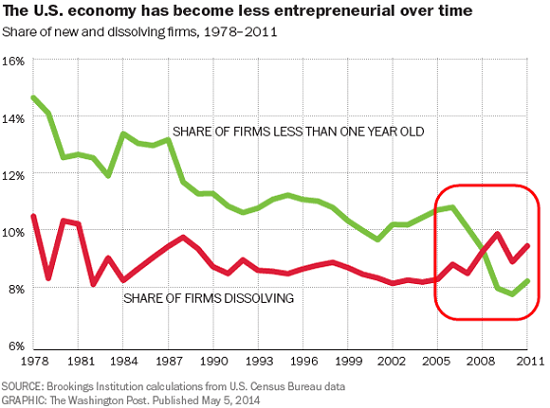That is debt to GDP ratio. At ~ 107% US is relatively well off.* In this buying debt and calling it an Asset, the Fed is leading the way. From non-human (other mammal's) POV fact that this house of cards will soon collapse is very desirable - some may survive extinction as 35C wet bulb kills most humans and sends rest into stone age culture. (Wood cooking fires don't make even 0.01% of civilization's CO2 release rate.) That is my optimistic opinion. Unfortunately the CO2 already released will in few hundred years become nearly in equilibrium with its ocean concentration, and that is much too acidic for the photo plankton to survive - I.e. even Eskimos lose the base of their food chain.
Yes the US debt to GDP ratio is good compared to many other countries. But you are still overstating US debt. As has been pointed out to you numerous times over the years, the number you are citing includes debt the government owes itself. So it really isn’t debt in the sense in which you are using it. If the US Treasury used the same reporting methods used in private companies, interagency debt would be netted out and not reported as debt. That is why the US Treasury reports “public debt” separately. And “public debt” is much less, about 5 trillion dollars less, than the number you are using.
And yes, debt is an asset, but it is also a liability. I guess you have not heard of double entry accounting. Double entry accounting is the norm.
http://en.wikipedia.org/wiki/Double-entry_bookkeeping_system
And you may not like to recognize the fact that debt has value to the creditor, it does. That is why debt is booked as an asset. That very basic fact is the foundation of finance. Future cash flows have value. And debt is a legal instrument which generates future cash flows. As much as it irks you, those future cash flows have value.
** Done in several different ways, but basically via "paper gold" sales that drive the price down. The amount of non-existing gold this paper creates is between 50 to 100 times the volume of real gold sold and physically delivered to buyer, who is increasingly Asian as US vault empty. US last had partially independent audit of gold at Fort Knox in 1950, but even if the gold is there, that does not mean US government owns it.
Most if not all physical gold held by central banks is quickly returned to the market via leases to bullion banks. The rent the central banks receive is so small that it doesn't cover the storage costs, but is better than nothing. Bullion dealers typically sell this borrowed gold and invest the proceeds at much higher rates than their rent cost. This can happen several times with the same gold as one sells to another, etc. Thus, in addition to the selling of "paper gold" the selling (and re-selling) of borrowed physical gold helps hold the price of gold down. If it were to steadily rise, then investors would not be buying debt issued by governmental Treasuries. It is all the world's greatest Ponzi scheme, but few if any will go to jail as it is mainly, at its base, the governments doing it.
This makes about as much sense as Sy-Fy’s, “Stonehenge Apocalypse” or “Sharknado” movies. The science or lack of it and lack of reasoning and facts are very similar. If only you knew something of the subject matter of which you write.
This really isn’t that difficult, real gold is traded and the right to sell or buy gold (“paper gold) at some future time is sold daily on markets. And futures markets can influence the price of gold upward or downward. It’s called speculation. If people think the price of gold in the future is going down, they are more likely to sell or delay purchases which would drive down current prices. Conversely, if people think gold prices will rise, they are more likely to buy gold today and drive current gold prices upward.
Further, you cannot short metals in the way you describe. People can short funds which own gold or they can short a futures contract (contract for future gold delivery). But they cannot borrow and sell the metal as you have alleged – damn minor detail again.
Two, the Federal Reserve doesn’t own any gold. The Federal Reserve holds gold for foreign countries like Germany. But it doesn’t own any gold. The US Treasury owns and is responsible for US government gold, so all of these gold conspiracies about the Federal Reserve are just manna for the ignorant.
http://www.federalreserve.gov/faqs/does-the-federal-reserve-own-or-hold-gold.htm
http://www.investopedia.com/stock-a...gll-dgz-dust-gld-iau-gs-abx-nem-gdx-dgld.aspx
http://commodities.about.com/od/understandingthebasics/a/selling-commodities.htm
** As US did not (could not?) deliver Germany's gold even on the seven year return rate initially US agreed to, so Germany has canceled the request for its return:In my opinion central banks know the end of the Ponzi takes them all down, so operate on the "don't shake the boat" principle, at least until one decides to jump ship or Comex etc. must default on gold delivery requests.
* They did see a few bars, but were not allowed to touch any. Bundesbank does not even know the serial numbers of the bars it owns - they can be shown any US has.
Except, your narrative here has no, ABSOUTELY NO, basis in fact as has been previously pointed out to you. But hey, you are not one to let little things like facts, evidence and reason get in the way of a good conspiracy.
“German gold held by the U.S. Federal Reserve in New York and in Paris is slowly but surely returning home, said a German central bank official in a Tuesday update in New York.
Germany’s gold repatriation program, whereby the nation’s central bank is recalling 674 metric tons from vaults in New York and Paris, is progressing slowly. About 69 tons have returned to Frankfurt so far.
“We have a very great deal of confidence in the security of our gold holdings abroad, so there’s no reason for us to rush through this relocation process,” said Henner Asche, the German Bundesbank’s deputy head of markets, at a New York gathering.
The German central bank is working closely with its French and U.S. counterparts and the Bank of International Settlements to transfer the gold, taking painstaking security and confidentiality measures. Citing security concerns, Asche declined to provide any details on the specifics of the shipments.
Complete relocation of all German gold held abroad isn’t desirable, said Asche, because international finance centers like New York and London provide the best liquidity, in case the Bundesbank decides to exchange gold for cash or other foreign currency.
Frankfurt’s share of Germany’s gold will rise to 50 percent by 2020, as Paris’ share is cut to zero and New York’s share falls to 37 percent. German gold held in London will remain unchanged. Germany held 3,387 tons of gold, or 67 percent of its total reserves, the second highest in the world after the U.S. by tonnage, according to World Gold Council data.
Some gold bars were melted down in Europe to meet the London Good Delivery standard for bars, said Asche.
Though the scheme was first announced in January 2013, that remelting could have contributed to delays before the first shipments started in the fall of 2013, according to George Milling-Stanley, a consultant to central banks on gold buying.
Germany requested a phased delivery over seven years, with each shipment kept small and with no more than one ton in any single delivery, he told IBTimes. “Insurers will cover only deliveries by air, and will not insure shipments of more than one ton at a time,” he said, citing publicly available sources.
A ton of gold is worth $42.2 million at Wednesday’s price of $1312 per ounce. New York’s delivered shipment alone of 37 tons is valued at about 11.9 billion euros ($16.5 billion), on the central bank’s accounting.
India and Sweden are two countries that have pledged gold abroad as collateral for urgent government loans, added Milling-Stanley. He underscored the importance of keeping some gold abroad for liquidity reasons.
About eight standard U.S. 18-wheeler trucks would be required to carry 300 metric tons of gold, the amount of gold Germany is claiming back from the Fed, estimated Anthem Blanchard, CEO of precious metals seller Anthem Vault.
The Bundesbank’s gold management received a favorable audit in 2012 by a German federal court of auditors, added Asche.
The decision to bring Germany’s gold back home wasn’t prompted by political pressure or the court’s audit, but was made independently by the central bank, said Asche.
“In Germany, a lot of emotion is attached to the topic of gold reserves,” said Asche at Bloomberg LP’s headquarters. “The German public in general appreciates the Bundesbank’s gold holdings as national wealth.”
http://www.ibtimes.com/german-gold-makes-it-way-back-home-fed-slowly-1563651










